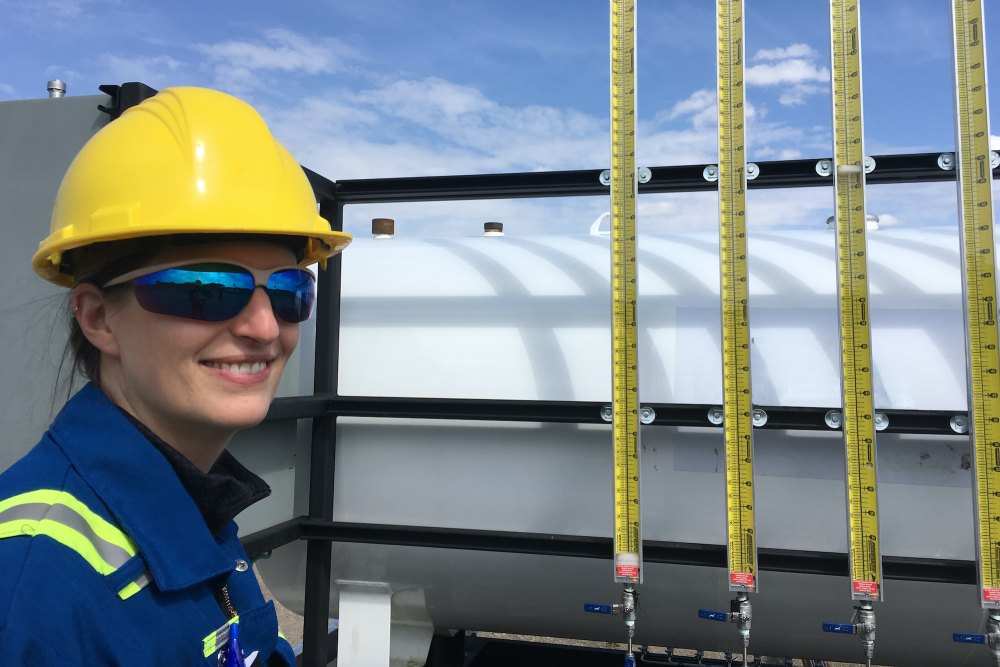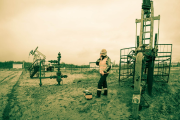Kate Beaton, the author of Ducks: Two Years in the Oil Sands is speaking in Calgary on Nov. 7. Her graphic narrative is a moving depiction of life in the oilsands, where she worked for two years in the mid-2000s, paying off her student loans. She describes being isolated, ogled, dismissed as cute, asked to perform dangerous jobs, sexually assaulted, and paid less than others for equal work. The world that she depicts is one that recent Pembina Institute research can confirm persists.
With COP27 underway, and the world lumbering towards a low-carbon future, Canada must ensure that the experiences of workers in traditional energy sectors are not replicated in the new energy economy. This clean economy must be sustainable not only in terms of carbon emissions but also in terms of ensuring the economic, physical, and psychological well-being of the people who work in the energy sector.
 Alberta is at a vital turning point: deployment of carbon capture to produce low-carbon electricity, hydrogen, chemicals, cement, and possibly even lower-carbon oil and natural gas, as well as the rapid growth of renewables due to power purchase agreements, place Alberta at the forefront of an incredible opportunity to create a low-carbon economy with sought-after, decent and well-paid jobs. But that will only happen if workplaces have the policies and culture to increase equity and avoid ongoing harm.
Alberta is at a vital turning point: deployment of carbon capture to produce low-carbon electricity, hydrogen, chemicals, cement, and possibly even lower-carbon oil and natural gas, as well as the rapid growth of renewables due to power purchase agreements, place Alberta at the forefront of an incredible opportunity to create a low-carbon economy with sought-after, decent and well-paid jobs. But that will only happen if workplaces have the policies and culture to increase equity and avoid ongoing harm.
However, when it comes to the energy sector, we have a long way to go: Women are underrepresented as workers in traditional mining, quarrying, and oil and gas extraction, making up only 22 per cent of the workforce in Alberta in 2021. In addition to this representation of women in the workforce, those that work there experienced a pay gap due to gender that is one of the highest in Canada.
Barriers for women
There were many reasons found for the low levels of women working in oil and gas, including systemic issues such as bias and societal expectations. Specifically, our research shows a lack of access to opportunity, inability to advance due to lack of training and mentorship, and industry cultures that perpetuate harm and harassment against women and gender-diverse people.
These barriers result in a sector where retention of women is low and, even those who persevere and remain find advancement very challenging. This is especially the case for women who are Indigenous, racialized, 2SLGBTQQIA+ or experiencing disabilities.
These issues are compounded by the uncertainties surrounding Canada’s efforts to combat climate change. Targets from the federal government, combined with interest in sustainable energy production force oil and gas workers to ask themselves: will there be good-paying jobs in the future?
And the answer is yes. The transition to a net-zero economy is an opportunity for a wide range of sustainable, long-term jobs across a wide range of industries.
Solutions need a co-ordinated approach
The solutions for achieving gender equity in the workplace though, are not specific to the energy sector: Providing training and education opportunities for all genders to enter the energy sector, creating flexible and safe workplaces, and supporting intersectional gender-diverse leadership. Addressing barriers faced by women and gender-diverse people require a co-ordinated approach between private industry, public governing bodies and educational institutions.
As the federal government develops the Just Transition legislation over the coming months, the Pembina Institute encourages policymakers to deliver a framework that integrates diversity, equity and inclusion in this changing workforce, as well as how historic inequities, especially with Indigenous nations, can be repaired. We also urge the government to outline a clear and consistent pathway to net zero, allowing workers to plan their careers with confidence.
In Ducks, Beaton shows the humanity of workers of all genders in the oilsands, and how workplaces can rob us of that humanity. As Canada moves towards a more sustainable future, we need to also move towards a more equitable future, where all Canadians can have opportunities for good, safe jobs in their communities.







